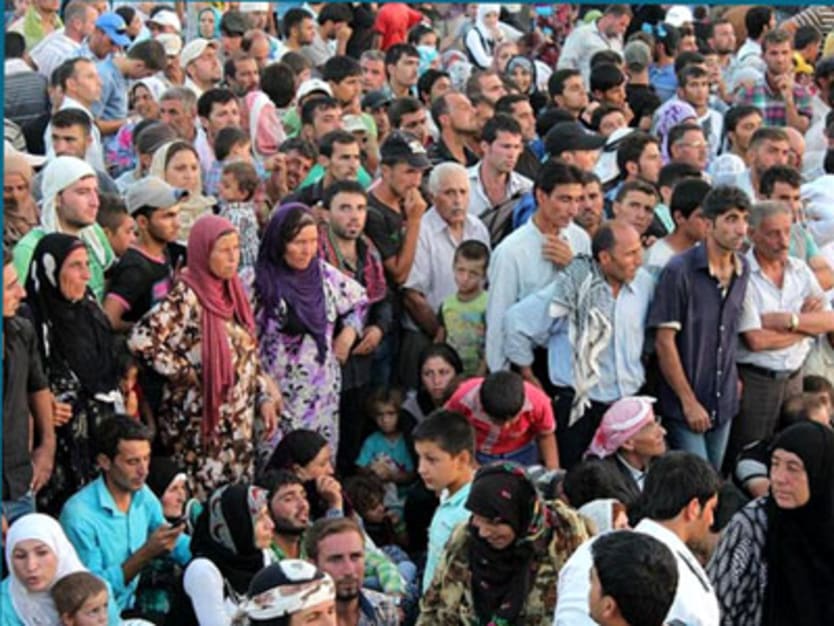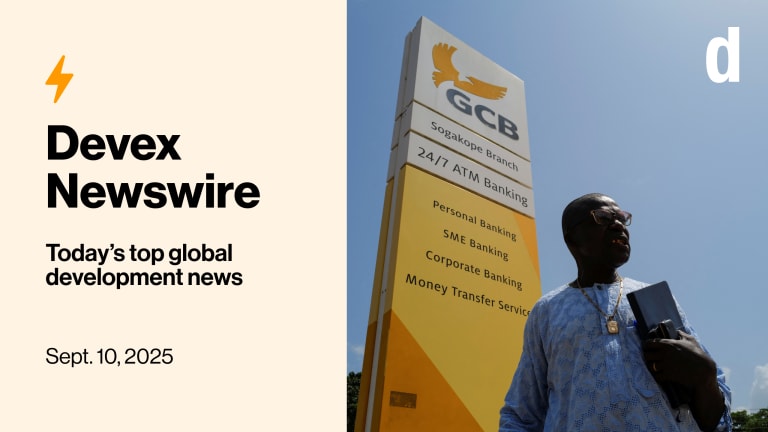
Along a quiet village road in Lebanon overlooking the Mediterranean Sea is a shopping mall filled with Syrian families.
But the people crammed into this white, boxy building are not shoppers — they are refugees. And each day, their numbers grow as the daily horrors of Syria’s staggering humanitarian crisis further undermine the region’s stability.
Oxfam first visited this building two months ago to provide clean water, healthy sanitation services and cash assistance to the roughly 100 families that called the open-air mall home. When I visited last week, the mall was “housing” 400 families, just a fraction of the 2 million refugees now living in neighboring countries like Lebanon.
While an abandoned commercial building does provide shelter and some level of security, it is not a suitable home for a family. There is limited running water, just a handful of bathroom facilities and little access to public services. Who picks up the trash for the 2,000 people there? In a rural area with limited service capacity, how will 400 families access schools for their children or find jobs to put food on the table? When your child is too sick and weak to open her eyes because of diaorrhea, how do you transport her 20 miles to the nearest hospital? One young father had borrowed a motorcycle to do just that.
I left the mall amazed at the resilience of the Syrian refugees, but I also left with more questions than answers.
No end in sight
In Jordan and Lebanon over the course of a week, I met with various government officials, aid organizations and hundreds of refugees. Today, it is clear to me that the humanitarian crisis facing Syria and its neighbors is nowhere near an end. Instead, sadly, much of the world is only just realizing the heartbreaking toll of this crisis — more than 100,000 dead, nearly 7 million displaced and vulnerable inside Syria, and another 2 million pushed across the border to seek asylum — and considering how to respond in the short-term.
But this crisis is now well beyond a short-term response. And so with humanitarian assistance required for years to come, is this response sustainable? Without question, the answer is no.
More than one-quarter of Lebanon’s population is made up of Syrian refugees. Could the United States assume responsibility for millions of Canadians without an impact on our economy, society and stability? Of course not.
Yet, the world largely shrugs as Lebanon, Jordan and Turkey continue to provide a home for 2 million Syrians despite their own problems. Maybe that’s because there is no long-term plan for handling a crisis of this magnitude and the strain it places on nations fulfilling their international duty to accept asylum seekers. But after walking through the urban refugee slums of Amman and Beirut, the informal tent communities wedged between industrial complexes, and the ramshackle huts dotting rural landscapes, it’s clear that many refugees are slipping through the cracks. Thousands live in utter anonymity — unregistered by the U.N. and host countries and therefore unable to access much-needed assistance. Some are clearly afraid for their lives, while others have tried to register for months, but to no avail. Overall, mass confusion reigns.
With the region preparing to absorb still more Syrians seeking shelter from the conflict, world leaders have finally achieved a small measure of common ground in seizing hold of the mantle of diplomacy. But much more must be done to allay the suffering of the Syrian people today and in the future. Oxfam continues to be deeply concerned that military intervention will damage the prospects for peace and threatens to further destabilize the region. Inevitably, it is diplomacy that will end the bloodshed and bring the Syrian people home.
Join the Devex communityand gain access to more in-depth analysis, breaking news and business advice — and a host of other services — on international development, humanitarian aid and global health.
Read more:






